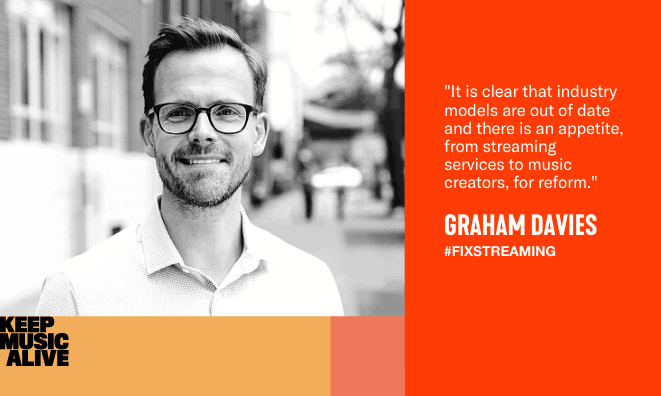At yesterday’s hearing, the latest in the DCMS Select Committee’s inquiry into The Economics of Streaming, Paul Firth (Director of International Music at Amazon), Horacio Gutierrez (Head of Global Affairs and Chief Legal Officer at Spotify) plus Elena Segal (Global Senior Director of Music Publishing at Apple Inc), gave evidence during a lengthy and robust session.
The three industry officials were subject to close and thorough examination by the MPs, now familiar with the ground following the previous hearings, and many of the key issues raised by the MU and The Ivors during the #FixStreaming campaign were aired.
Horacio Gutierrez (Head of Global Affairs and Chief Legal Officer at Spotify) stated that music catalogue controlled by the major labels represents the vast majority of the content available on streaming platforms and intimated that the majors therefore have all the power in negotiation.
All three platform representatives indicated that streaming isn’t a sales model and was more like a licence, rental, broadcast or something new that invited an original legal definition. Gutierrez explained that “streaming is clearly a licence from a contractual perspective” not a sale.
Gutierrez also shed some light on negotiation with the major rights holders, saying that the three big labels demanded the lion’s share of streaming revenue and this meant the publishers had to accept a smaller percentage.
Graham Davies, CEO of The Ivors Academy, said:
“Yesterday’s session of the DCMS Select Committee with Apple Music, Spotify and Amazon Music provided further confirmation that this inquiry has been essential. It is clear to all that the industry models are out of date and there is an appetite, from streaming services to music creators, for reform. The current practices are held in place due to a lack of transparency, insufficient accuracy and inconsistent regulation of the major music intermediaries.”
Naomi Pohl, Deputy General Secretary of the MU, said:
“This session has thrown some light into an area of the industry which by Spotify’s own admission is shrouded in ‘a high degree of opacity’. We must find a way to make the division of revenue more equitable for all musicians, creators and rightsholders.
Given that the back catalogue controlled by major labels makes up such a significant share of music on these platforms, we must make sure that legacy artists are getting a fair deal, not just new acts. We must fix deals and put more collective rights management in place.
Spotify also said that ‘streaming is clearly a licence from a contractual perspective’ and not a sale. This means royalties should be paid to artists by labels at 50%. In fact none of the platforms’ representatives argued that streaming is a sales model, although labels pay out to artists on that basis.
“We also heard about the role of human curation in playlisting and ad-supported services, which point to a broadcast model like radio. It is becoming increasingly clear that we need a review of how streaming is categorised legally as this could significantly improve payments to musicians and create an entirely new royalty stream for session players.”





